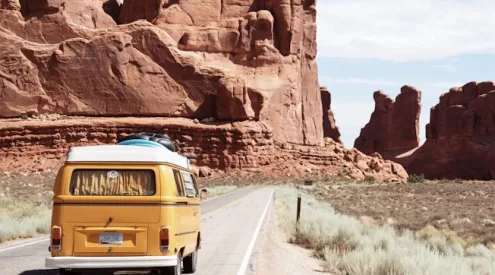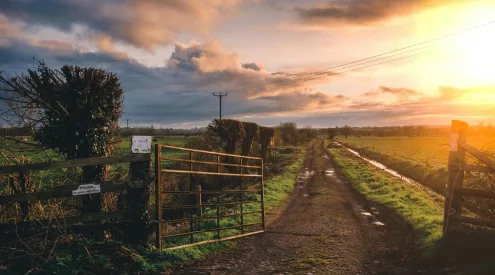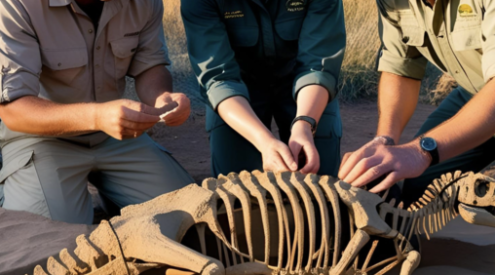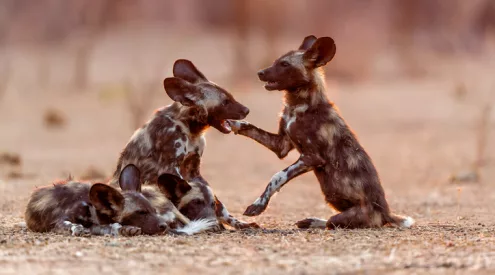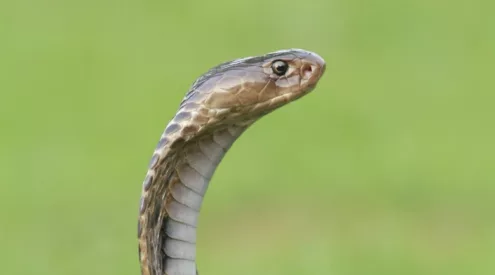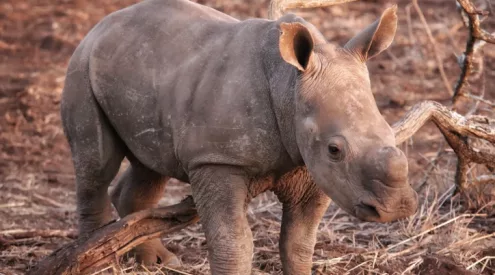For the first time in approximately 150 years, lions are once again roaming the spectacular rolling valleys and bushveld of Babanango Game Reserve in KwaZulu-Natal. In this historic move, two male lions have been reintroduced into this 20 000 hectare game reserve, as part of the reserve’s ambitious and successful rewilding journey.
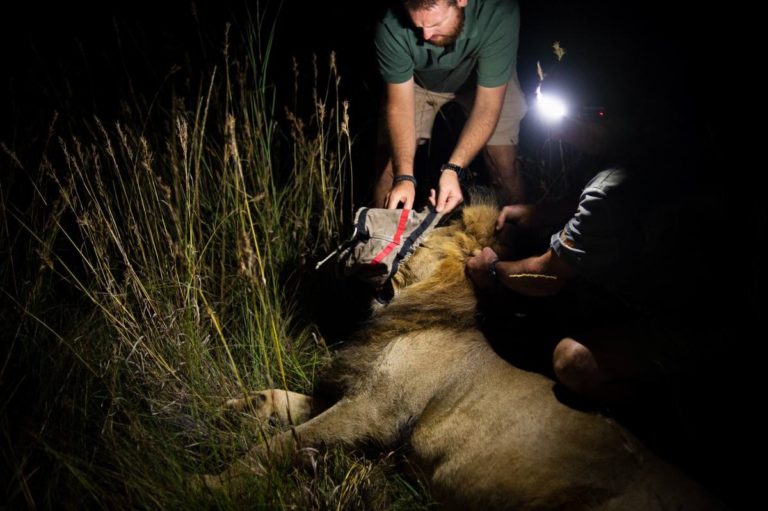
Picture: Casey Pratt Photography – Male lion being captured at Nambiti to go to Babanango Game Reserve
The lions were translocated from Nambiti Private Game Reserve in April this year under the guidance of veterinarian Dr. Ryan van Deventer and Babanango partner, Chris Galliers of Conservation Outcomes. During the pre-release phase, the two young males were held in the Babanango predator boma for monitoring before being successfully released onto the reserve. Before the release, both lions were fitted with tracking collars to assist in post-release monitoring, with their movements being tracked daily to ensure that they settle well into their new home.
‘Our reserve is situated in the heart of Zululand, where seven Zulu Kings are buried not far from here, therefore terming the area ‘The Valley of The Kings’. The introduction of ‘The King of Beasts’ into Babanango Game Reserve was barely imaginable a mere 3 years ago but now that it has come to fruition, we are ecstatic and one step closer to fulfilling this incredible dream of Big 5 status,’ said Musa Mbatha, Reserve Manager, Babanango Game Reserve.
Lions play a crucial role in the African ecosystem as apex predators, fulfilling an important ecological role on the reserve. Grazers, such as large herds of ungulates like eland, zebra, wildebeest and buffalo, are growing in abundance in Babanango Game Reserve. Predation by lions will help manage their populations by removing old, sick, or injured animals, thus promoting healthy populations. The presence of lions will also benefit other scavenging species, such as vultures and brown hyenas, by providing access to more food sources.
The Return of the King
The reintroduction of these iconic predators to this region of Zululand is part of a larger vision for the reserve and its contribution to conservation. In partnership with Conservation Outcomes and the Community Trust Landowners, the release of this species is a positive step forward in not only the health of the species’ population but for the establishment of the reserve itself.
‘The king of the jungle, the fearful but wonderful and loveable creature of God is now back to its place of origin. Above all the source of joy and the creation of job opportunities for all and the attraction of visitors across the globe, for the youth and people of Babanango, this is your gift, receive it, enjoy it, protect it and enjoy the benefits,’ said Kenneth Buthelezi, Chairman of Emcakwini Community Trust.
This is a significant milestone for conservation in South Africa – lions are listed as “Vulnerable” in their status by the International Union for the Conservation of Nature (IUCN) Red List of Threatened Species. Key threats to lion populations in South Africa include habitat loss, human-wildlife conflict, poaching, disease outbreaks, and illegal wildlife trade. These threats contribute to the decline of lion populations and require ongoing conservation efforts to ensure their long-term survival.
The stability of lion populations relies on several key factors, including the growth of their population, maintenance of genetic diversity, and most significantly, the preservation of their natural habitat.
To ensure genetic diversity, the lions in Babanango Game Reserve will be managed as part of a meta-population. They will be joined by another four females that have been sourced from other areas in South Africa.
The rewilding of Babanango Game Reserve
Over the past five years, the reserve has undertaken an extensive game translocation initiative, sensitively reintroducing close to 2,500 large mammal species back into the area, where once such species roamed freely. This successful endeavour has included the reintroduction of endangered Black Rhinos and rare antelope like Oribi and Klipspringer.
The reserve incorporates a significant portion of land that has been invested by three community trusts from the region, whose commitment plays a crucial role in long-term conservation success. The income generated through land leases, conservation levies, and other benefits from the reserve is vital for the economic well-being of the surrounding communities.
‘Introducing lions as one of the final species in the rewilding process is no small feat. Many important requirements, from food sources to infrastructure, must be adequately placed before any lion is released. Therefore, lions are a symbol of the culmination of years of investments by so many people including the majority landowners, the three Community Trusts. To hear the sound of a lion’s roar reverberating through the valleys of Babanango Game Reserve, the heart of Zululand, will be the sound of another conservation success in this incredible project,‘ said Chris Galliers, Conservation Outcomes.
Babanango Game Reserve is committed to its mission of rewilding, and the reintroduction of ‘The King of Beasts’ is a crucial milestone in the reserve’s conservation efforts. In addition, the reserve and its new suite of lodges, are now positioning itself as a unique tourism product for both local and overseas tourists.
Watch the short film below:
Follow us on social media for more travel news, inspiration, and guides. You can also tag us to be featured.
TikTok | Instagram | Facebook | Twitter
ALSO READ: Scientists discover first “virgin birth” in crocodiles

